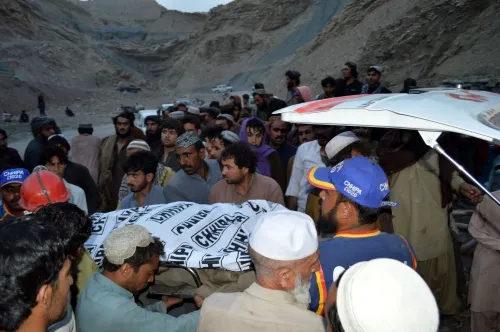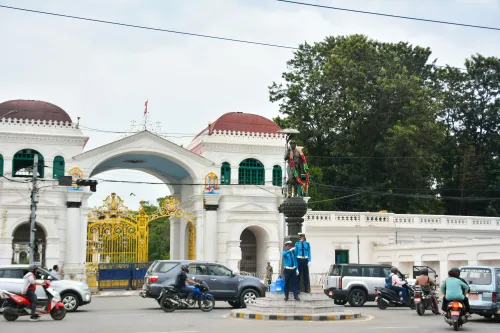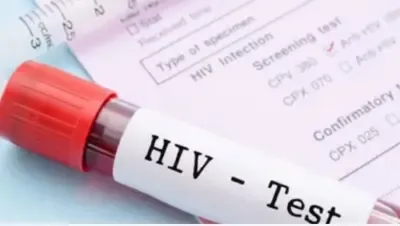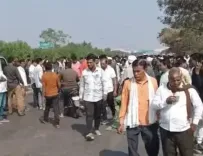South Korean Air Force Confirms Pilot Error in Fighter Jet Bombing Interim Investigation
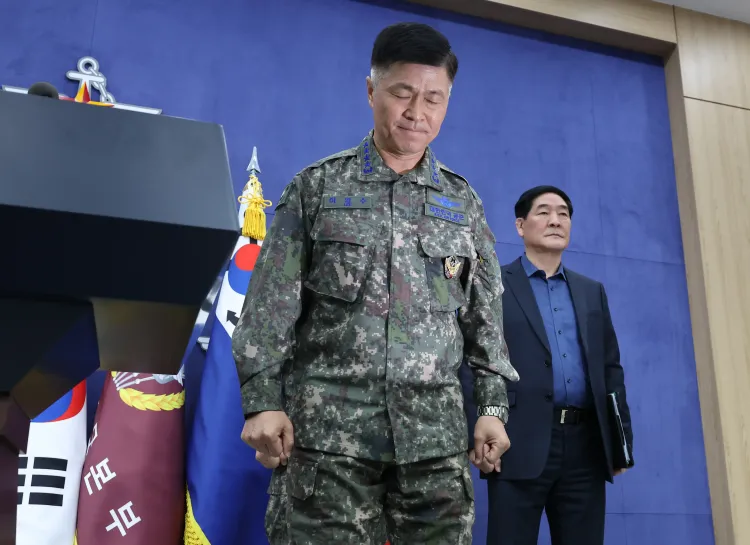
Synopsis
Key Takeaways
- Pilot error confirmed as the main cause of the bombing.
- Incorrect target coordinates inputted by the pilot.
- At least three opportunities missed to catch the error.
- Inadequate management and oversight procedures were noted.
- Measures to enhance safety and inspection protocols announced.
Seoul, March 10 (NationPress) The South Korean Air Force has reaffirmed that pilot error was the primary factor behind an unprecedented accidental bombing of a civilian area last week, as it unveiled the interim investigation findings related to the fighter jet incident.
Last Thursday, two KF-16 fighter jets released eight 500-pound MK-82 bombs outside a training zone in Pocheon, located approximately 40 kilometers north of Seoul, during live-fire exercises, resulting in injuries to 31 individuals, including 19 civilians.
Previously, the Air Force indicated that pilot error was the suspected reason for the unintended bombing, as one of the pilots had mistakenly entered incorrect target coordinates before takeoff.
In its interim findings, the Air Force disclosed that the target's latitude coordinates were inaccurately inputted after the first pilot read them aloud for the second pilot to enter into the computer system during prep.
It remains uncertain whether the coordinates were misread or misheard; however, the Air Force noted there were still at least three chances to identify the error and avert the accidental bombing.
“The pilot of the first aircraft should have double-checked the target at least three times throughout the assignment process but failed to do so,” the statement revealed.
The pilot was required to verify the target when entering the coordinates in the joint mission planning system and checking the aircraft after fitting a data transfer cartridge prior to takeoff, according to military guidelines.
After takeoff, the pilot noticed that the flight route appeared slightly different compared to the preparatory training course but proceeded to execute the bombing without verifying the coordinates, aiming to adhere to the target timeline, it added.
Meanwhile, the second pilot entered the correct coordinates for his aircraft but followed the first jet's actions due to the training being structured as a simultaneous strike exercise.
The Air Force also cited inadequate management and oversight procedures as contributing factors to the incident, stating that specific instructions were not communicated to the pilot by superiors.
It was confirmed that the Master Control and Reporting Center, responsible for aircraft flight operations, and the Joint Terminal Attack Controller, which directs ground air strikes, complied with proper protocols.
Ground troops granted final approval for the bombing after the pilot claimed to have visually confirmed the target, even though he had not done so due to time limitations, according to the Air Force.
As part of corrective actions, the Air Force has pledged to enhance procedures for confirming target coordinates during live-fire drills and to revamp its overall reporting system for unusual situations.
The military also announced intentions to improve mission inspections and bolster safety training related to live-fire exercises for all pilots.
“The Air Force, which is responsible for safeguarding the lives and property of the public, has caused harm to the people,” said Air Force Chief of Staff Gen. Lee Young-su in a public apology.
“This was an accident that should never have occurred and must not happen again.”
The Defence Ministry has indicated plans to carry out its own investigation into the bombing due to the seriousness of the incident.
Authorities are expected to examine both pilots involved, as well as others in the training, who may face criminal charges based on the investigation's findings.
The Air Force, which had grounded almost all aircraft following the accidental bombing, announced plans to gradually resume flight training on Monday, coinciding with the commencement of a significant spring joint exercise between South Korea and the United States, as reported by Yonhap news agency.
However, live-fire drills will not recommence until preventive measures have been established and relevant actions completed.



